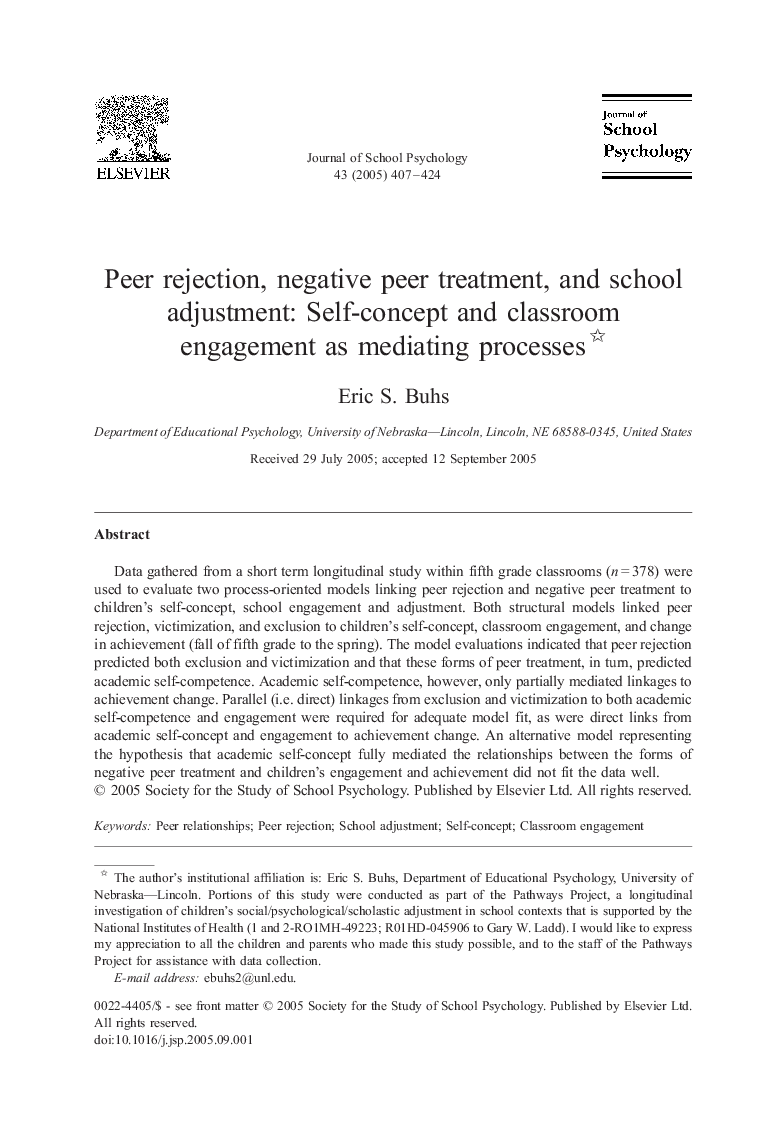| Article ID | Journal | Published Year | Pages | File Type |
|---|---|---|---|---|
| 10315249 | Journal of School Psychology | 2005 | 18 Pages |
Abstract
Data gathered from a short term longitudinal study within fifth grade classrooms (n = 378) were used to evaluate two process-oriented models linking peer rejection and negative peer treatment to children's self-concept, school engagement and adjustment. Both structural models linked peer rejection, victimization, and exclusion to children's self-concept, classroom engagement, and change in achievement (fall of fifth grade to the spring). The model evaluations indicated that peer rejection predicted both exclusion and victimization and that these forms of peer treatment, in turn, predicted academic self-competence. Academic self-competence, however, only partially mediated linkages to achievement change. Parallel (i.e. direct) linkages from exclusion and victimization to both academic self-competence and engagement were required for adequate model fit, as were direct links from academic self-concept and engagement to achievement change. An alternative model representing the hypothesis that academic self-concept fully mediated the relationships between the forms of negative peer treatment and children's engagement and achievement did not fit the data well.
Related Topics
Social Sciences and Humanities
Psychology
Applied Psychology
Authors
Eric S. Buhs,
